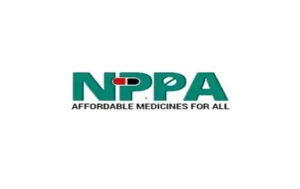Last Updated on May 20, 2024 by The Health Master
Protein
Many fitness enthusiasts, especially young people, rely heavily on protein supplements to build muscle mass.
However, a recent report by the Indian Council of Medical Research (ICMR) National Institute of Nutrition (NIN) sheds light on the potential drawbacks of this trend.
This article dives into the ICMR’s guidelines on protein supplements, explores the risks associated with excessive consumption, and unveils healthy alternatives for achieving your protein needs.
ICMR Raises Concerns About Protein Powders
The ICMR’s 148-page dietary guidelines specifically warn against using protein supplements solely for bodybuilding purposes.
These supplements are often marketed for their high Branched-Chain Amino Acid (BCAA) content.
While BCAAs (leucine, isoleucine, and valine) play a role in muscle repair and growth, the ICMR highlights a potential link between excessive BCAA intake and an increased risk of chronic diseases.
While some plant-based protein powders exist, the ICMR cautions against the added sugars, artificial sweeteners, and flavorings used to enhance their taste.
These additives can diminish the health benefits of the protein itself.
The ICMR suggests a simpler solution: consuming a balanced diet rich in protein.
They recommend incorporating a 3:1 ratio of cereals to pulses in your meals.
Alternatively, you can substitute 30 grams of pulses with 80 grams of meat per day to meet your protein requirements.
Potential Health Risks of Overdoing Protein Supplements
While protein supplements can be beneficial in specific situations, it’s crucial to understand the potential downsides before incorporating them into your routine.
Here are some key points to consider:
Kidney Strain:
High protein intake, especially from supplements, can overburden your kidneys.
The kidneys filter waste products from the blood, including those produced during protein metabolism.
Excessive protein intake can lead to kidney dysfunction, particularly for individuals with pre-existing kidney conditions.
Dehydration:
Protein breakdown generates urea, which the kidneys eliminate through urine.
Extra protein intake necessitates more water for proper excretion.
If you don’t stay adequately hydrated, excessive protein consumption can lead to dehydration, negatively impacting your health and athletic performance.
Digestive Issues:
Protein supplements, particularly whey or casein-based ones, can cause digestive discomfort like bloating, gas, constipation, or diarrhea.
This can be due to lactose intolerance, sensitivity to specific protein sources, or added ingredients like artificial sweeteners.
Nutrient Imbalances:
Over-reliance on protein supplements can lead to nutrient deficiencies.
Whole food protein sources, such as lean meats, fish, eggs, legumes, and nuts, provide not only protein but also essential vitamins, minerals, and other vital nutrients.
Excessive protein supplement intake at the expense of whole foods can lead to long-term nutritional deficiencies.
Weight Gain:
Contrary to popular belief, protein supplements can contribute to weight gain if you consume more calories than you burn.
Powders high in calories or added sugars can disrupt your calorie balance, leading to unwanted weight gain if not consumed as part of a balanced diet.
Allergic Reactions:
Individuals with food allergies or sensitivities may experience allergic reactions to protein supplements.
These reactions can range from mild itching or hives to severe anaphylaxis, requiring immediate medical attention.
Contamination Risks:
Some protein supplements, especially those sourced from animal products, may be contaminated with harmful substances like heavy metals, pesticides, or bacteria.
Poor manufacturing practices, inadequate quality control, or improper storage can increase the risk of contamination, posing health risks to consumers.
Hormonal Disruption:
Certain protein supplements, particularly those derived from animal products, may contain hormones or hormone-like compounds that can disrupt hormonal balance in the body.
For instance, whey protein supplements may contain naturally occurring hormones like insulin-like growth factor 1 (IGF-1), which has been linked to an increased risk of certain cancers when consumed in excess.
Focus on Protein-Rich Foods
A well-balanced diet rich in whole food protein sources is the key to achieving your muscle-building goals.
Here are some excellent options to consider:
- Lean Meats: Chicken breast, turkey, and lean cuts of beef offer high-quality protein with minimal fat content.
- Fish: Salmon, tuna, and other fatty fish are excellent protein sources and rich in omega-3 fatty acids, which benefit heart health.
- Eggs: A complete protein source, eggs provide versatility and essential nutrients like vitamins B12 and D.
- Dairy: Greek yogurt, cottage cheese, and milk are rich in protein and calcium, promoting bone health.
- Legumes: Beans, lentils, and chickpeas are plant-based protein powerhouses, also high in fiber and micronutrients.
Disclaimer: This article contains information derived from the source mentioned below. Our team utilized an AI language model to rewrite and present the news or article in a unique format.
ICMR issues Dietary guidelines for Indians
Proposed Sale of OTC Drugs in General Stores Raises Concerns from Chemists
Nestle India Under Fire for Allegedly Adding Excess Sugar to Baby Food
DCC Approves Ban on Harmful Antibiotics in Food Products
For informative videos by The Health Master, click on the below YouTube icon:
For informative videos on Medical Store / Pharmacy, click on the below YouTube icon:
For informative videos on the news regarding Pharma / Medical Devices / Cosmetics / Homoeopathy etc., click on the below YouTube icon:
For informative videos on consumer awareness, click on the below YouTube icon:











